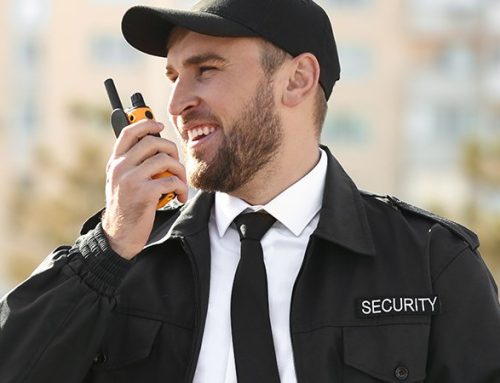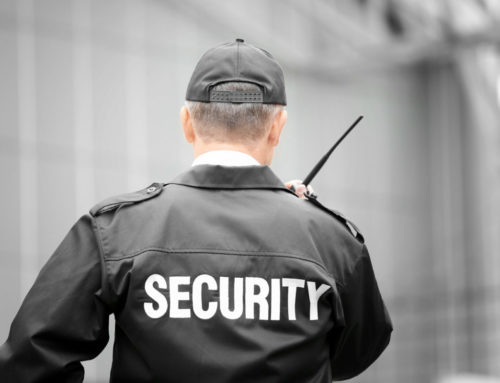Just as the population of Canada continues to rise, the same is true for the demand of security officers. In order to qualify for the position of a security guard, you need to have a valid security license.
Each and every security guard who lives in Canada needs to strictly adhere to the code of conduct and regulations described in the Private Security and Investigative Service Act of 2005. This includes possessing a valid license as you’re patrolling. The security guards who end up violating this stipulation are culpable of 1 year in prison and a fee of up to C$25,000.
The following article is going to simplify and clarify the process of becoming a security guard licensed in Canada.
Easiest Way to Become a Canadian Security Guard
Every province basically follows the same process when it comes to becoming qualified as a security guard. It begins with ensuring that all the requirements for your province are met, which can be determined by referring to your province’s government website. Potential security guards will then take special training courses, pass a security guard assessment and apply for a license in their province.
1. Make Sure You’re Satisfying Each Requirement:
• You must possess a clean criminal record
• You have to be 18 years or older
• You need to have a valid work visa
• You must hold a permanent residency permit
• You have to be eligible to serve in Canada
2. Fulfill the Mandatory Training — CPR and First Aid Qualifications
Applicants have to complete preparatory courses to become security guards. Candidates can obtain security training from government approved security departments. Anyone who takes basic training must complete 40 hours and it must include becoming certified in first aid practices.
The lowest acceptable first aid training requirements are a level A in CPR and emergency level first aid. The suggested requirements are level C CPR and standard first aid. Those certifications give you the knowledge and skills needed to understand the best ways to deal with any emergencies — giving you a clear advantage over your peers.
3. Obtain Your Number for Completing Training
After you complete your security program, a number is going to be given to you by your provider. You will need to use this to register for the security guard test.
4. Fill Out the Guarantor Form
A guarantor has to have been associated with you for a minimum of 2 years and should be accessible by telephone for confirmation. Your guarantor needs to be able to verify that the information you’ve conceded is accurate and reliable. When you can’t find a guarantor who’s been acquainted with you for at least 2 years, the people listed below can take care of the guarantor form for you:
• An officer from a licensed security guard agency
• Your employer
• Investigator agency
• Police officer
• Judge
• Professional engineer
• Professional accountant
• Justice of the peace
• Administrator or professor at a public college or university
• Pharmacist
• Mayor
• Lawyer
• Minister of Religion qualified under provincial law to perform marriages
• Physician
You should complete all of the application information on the guarantor information section prior to showing it to your guarantor.
5. Get Registered for the Security Guard Assessment
Each test is made up of 60 multiple choice questions centred around subjects covered in your basic training classes. The time you have to finish each test is 75 minutes. The cost of the security assessment is $75.15 after taxes. French and English are the main testing languages. Your test results are generally available within two days after you complete the assessment.
When you fail a test, you have the option to take it again as many times as you want — provided that you pay the full fee each time. Once you pass the test, you can then apply for your security guard license in Canada.
Note: The number you received after completing training will be needed to register for your test.
6. Apply for Your Canadian Security Guard License
After the preliminary requirements are met, you can go on to file a security guard license request through the Ministry of Community Safety and Correctional Services in the province you want to work in.
You have to provide:
• Number of training completion
• Passport photos
• Valid identification copies
• Filled out guarantor form
An application form and a guarantor information form can be downloaded from the website of your province’s Ministry of Community Safety and Correctional Services.
7. Apply to Your First Security Job
Once you obtain your security license to serve as a security guard in Canada, find an agency that’s right for your needs and start your career from there!
How Long Will I Need to Wait for a Security License to Arrive in the Mail?
The time needed for your license to get approved will vary and it depends on which province you live in. It will take around 2-10 days in Nova Scotia or, for those in Ontario, a maximum of 30 days.
As with similar professional licenses, a Canadian bodyguard or security guard license will have a date of expiration. License holders have to renew by sending in a renewal request and paying a fee for the renewal.
The number of years a security license is good for in Canada will depend on the province you live in:
• Alberta — 2 years
• British Columbia — 1 year
• Manitoba — 1 year
• New Brunswick — 2 years
• Newfoundland — 1 year
• Nova Scotia — 1 year
• Ontario — 2 years
• Quebec — 1 year
• Saskatchewan — 1 year
Bottom Line
Security guards might not get the respect they always deserve in Canada, but they have important roles in the daily lives of many. They do not just keep people safe, they protect and guard money, valuables and buildings as well.
You just read about how a career as a security guard in Canada generally involves obtaining a security license, successfully going through your security training courses and completing a security guard assessment. The requirements for securing a security guard license in Canada will vary a bit depending on the province where you reside.
Related article: 5 Key Tips Every Security Guard Should Know




